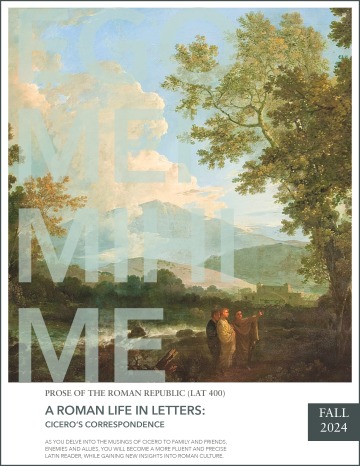Image

smccallum@arizona.edu
Office
Learning Services Building 214
Office Hours
Spring 2025: Tuesdays and Thursdays, 2–3pm (or by appointment)
Personal Site
McCallum, Sarah
Associate Professor
Research Interests
Latin language and literature, especially Republican and Augustan poetry
-
Roman elegy and epic
-
Catullus, Lucretius, Vergil, Propertius, Tibullus, and Ovid
Greek language and literature, especially Archaic and Hellenistic poetry
-
Epic, lyric, and epigram
-
Homer, Hesiod, Callimachus, and Theocritus
The ancient literary tradition
-
Genre, aesthetics, and intertextuality
The concept of love in Roman poetry
-
Tracing the development of a cultural concept
Publications
Monograph
-
McCallum, Sarah L. Elegiac Love and Death in Vergil's Aeneid. Oxford University Press, 2023.
Image
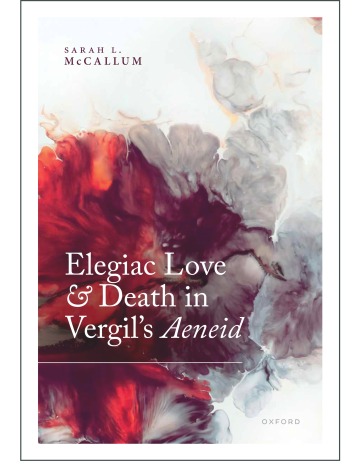
Co-edited volume
-
Gwynaeth McIntyre and Sarah McCallum, eds. Uncovering Anna Perenna: A Focused Study of Myth and Culture. London; New York: Bloomsbury Academic, 2019.
Image
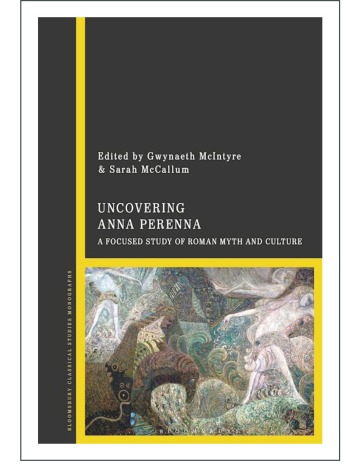
Articles and book chapters
-
“From Caieta to Erato: Vergil’s Elegiac Program in Aeneid 7.1–45.” In Vergil and Elegy, edited by Alison Keith and Micah Myers, 125–38. University of Toronto Press, 2023.
-
“Nulla fabula tegenda: Ovid’s Elegiac Revision of Vergilian Allusion.” In Uncovering Anna Perenna: A Focused Study of Myth and Culture, edited by Gwynaeth McIntyre and Sarah McCallum, 19–36. Bloomsbury Academic, 2019.
-
“Ego sum pastor: Pastoral Transformations in the Tale of Mercury and Battus (Ov. Met. 2.676–707).” Classical Outlook 92.2 (2017): 29–34.
-
“Primus Pastor: The Origins of Pastoral Programme in Ovid’s Metamorphoses.” In Roman Literary Cultures: Domestic Politics, Revolutionary Poetics, Civic Spectacle, edited by Alison Keith and Jonathan Edmondson, 124–39. University of Toronto Press, 2016.
-
“Heu Ligurine: Echoes of Vergil in Horace Odes 4.1.” Vergilius 61 (2015): 29–42.
-
“Elegiac Amor and Mors in Vergil’s ‘Italian Iliad’: A Case Study (Verg. Aen. 10.185–193).” Classical Quarterly 65.2 (2015): 693–703.
Public Scholarship
-
McCallum, Sarah, and Arum Park. “Teaching Love.” Pasts Imperfect (2.10.2022).
Honors and Awards
University of Arizona
-
2024 Provost Award for Innovation in Teaching
-
2024 College of Humanities Distinguished Teaching Awards (Full Story)
-
2023–2024 WAC Faculty Fellowship
-
2022 Provost Author Support Fund
-
2021 Five Star Faculty Award Nominee
Spring 2025 Courses
GRK 102 – Elementary Classical Greek II
Image
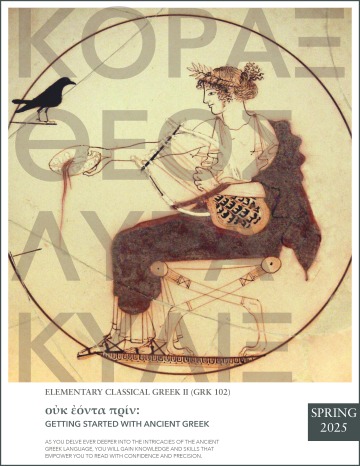
LAT 413/513 - Augustan Literature
Image
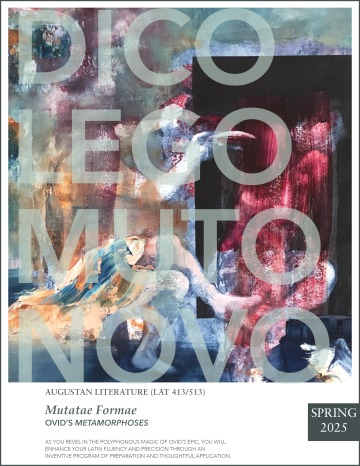
Fall 2024 Courses
GRK 101 – Elementary Classical Greek I
Image
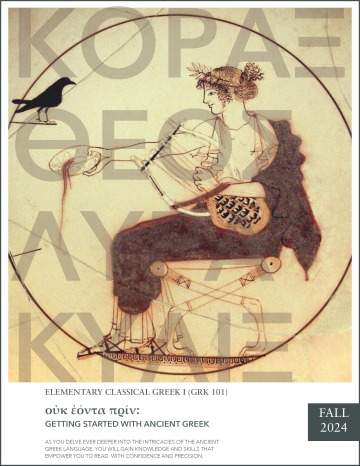
LAT 400 - Prose of the Roman Republic
Image
